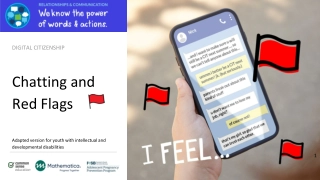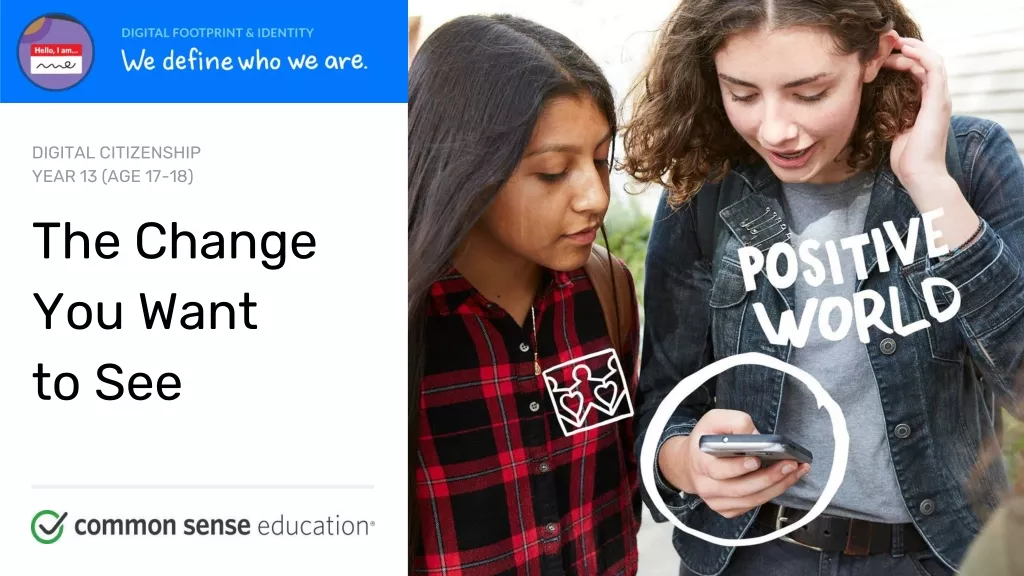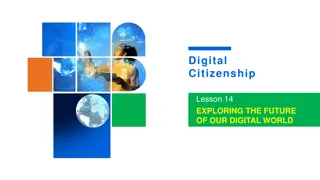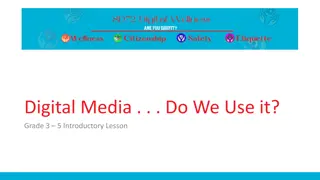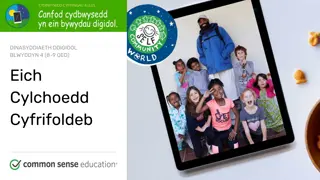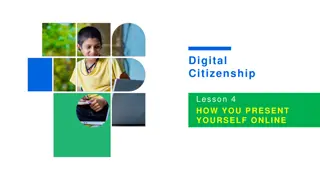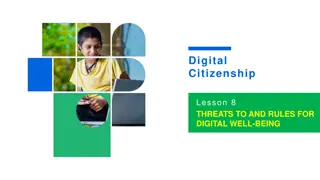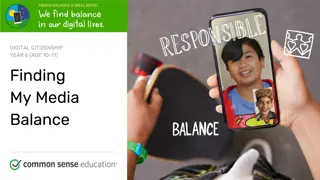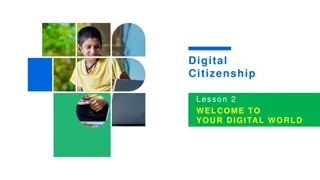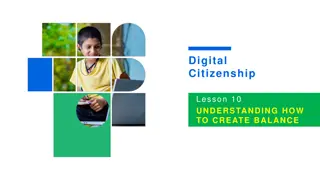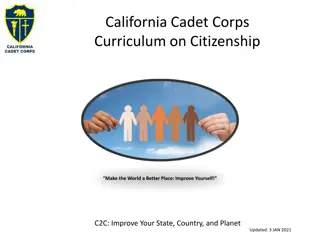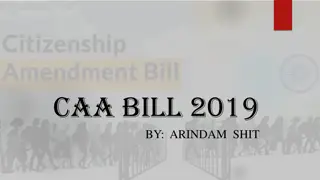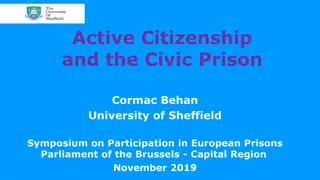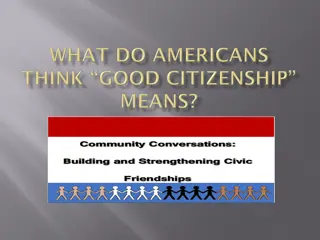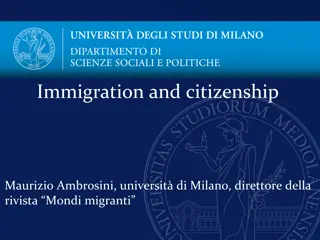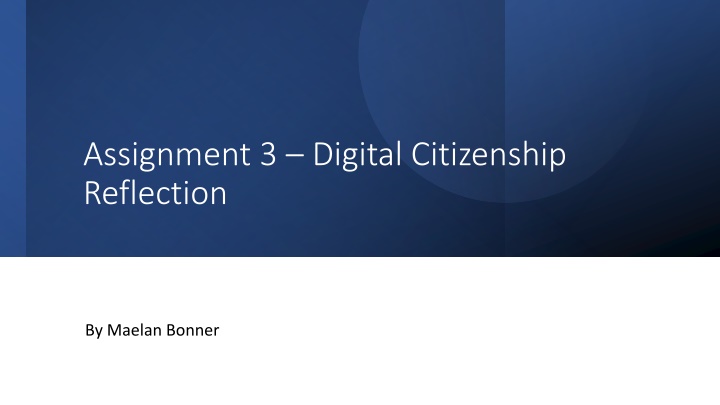
Digital Citizenship Reflection and Tips for Online Safety
Explore the impact of digital media on our lives, privacy concerns, and the importance of managing our digital footprint. Learn about digital wellness, online security, and ways to avoid misinformation online. Discover valuable insights on digital communication and the influence of internet advertising.
Download Presentation

Please find below an Image/Link to download the presentation.
The content on the website is provided AS IS for your information and personal use only. It may not be sold, licensed, or shared on other websites without obtaining consent from the author. If you encounter any issues during the download, it is possible that the publisher has removed the file from their server.
You are allowed to download the files provided on this website for personal or commercial use, subject to the condition that they are used lawfully. All files are the property of their respective owners.
The content on the website is provided AS IS for your information and personal use only. It may not be sold, licensed, or shared on other websites without obtaining consent from the author.
E N D
Presentation Transcript
Assignment 3 Digital Citizenship Reflection By Maelan Bonner
Digital Wellness Digital media has become a huge part of our lives. The role of digital media is to have a way to put out information so that people can learn stuff and be anywhere they want. One of the digital medias that I use is Instagram. Instagram is a great way to post about stuff weather that be just personal updates to friends and family or spreading awareness and information about something happening in the world. Digital Wellness. Digital Wellness lunch-and-learn Event, November 23, 2020, https://www.mcgill.ca/channels/channels/event/digital-wellness- lunch-and-learn-326132 , Accessed October 20, 2022
Privacy and Security At what age should people be allowed to use social media in your opinion? I think that at the age of 12 people should be allowed to use social media. I think this because people under this age might not be very mature and do silly things online that can reflect back on them later. I feel that at the age of 12 you are able to understand that what you put on social media is out on the internet for ever, and you can t do anything to undo what you posted. Shankar, Bradly. DATA BREACH REPORTS SET TO SKYROCKET IN 2017 THANKS TO PASSING OF DIGITAL PRIVACY ACT. CANADIAN STARY UP NEWS & TECH INNOVATION, FEBRUARY 14, 2017 HTTPS://BETAKIT.COM/DATA-BREACH-REPORTS-SET-TO- SKYROCKET-IN-2017-THANKS-TO-PASSING-OF-DIGITAL- PRIVACY-ACT/ . ACCESSED OCTOBER 20, 2022
Digital Footprint and Identity How can information that you post online affect your future opportunities? When posting information, online you are letting go of your control of what happens to that information. If you happen to post something that isn t all that smart, it is now out there and you can t do anything about it. This could affect your future opportunities for a job application. If who ever is looking to hire you does a background check and sees not so good stuff from your past, that could now affect your chances of getting hired. What s a digital footprint and why does it matter? Tips for protecting your data, https://www.allstateidentityprotection.com/co ntent-hub/whats-a-digital-footprint-and-why- does-it-matter . Accessed October 20, 2022
Digital Communication How does internet advertising contribute to the spread of misinformation? How can you avoid being fooled by fake videos and other information online? The spread of misinformation online is becoming bigger and bigger. People will put out adds for things that are not true but make them look very believable. By putting this misinformation on the internet, it is being sent out to thousands of people. The best way to avoid being fooled by fake videos and information is to do research if you suspect that what you have watched or read is not true. Chamat, Ramzi. Digital Communication. Digital Communication: How to Become an Expert in 2021 & Beyond, March 1 2021, https://ewm.swiss/en/blog/digital- communication-how-become-expert-2021-beyond . Accessed October 20, 2022


